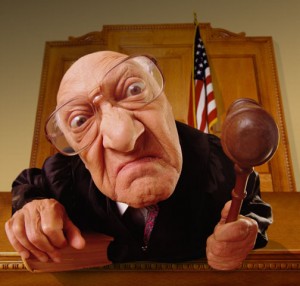Many musicians find the legalities of the music industry scary or, according to some research from my blog and newsletter, haven’t even looked at a contract. In fact, the music industry itself has made a point to tout it’s legal strength anytime someone tries to do something inventive and effective in the music space, rather than trying to learn from or emulate the result (zing!).

The fact of the matter is that yes, you do need a lawyer to review your contracts and licenses. However, you don’t need one in order to understand the fundamentals of a license. You see there are three key terms when a television show, film, or ad agency wants to license music. These 3 terms are also the foundation of negotiations and help determine the cost of the copyright to be used. Here they are:
Media: This is essentially the “what” of a music license. Will it be broadcast on TV, streamed on the internet, or will it be used for an in-house presentation? It can be any one, or any combination of, pretty much anything you can think of.
Term: This is the “when” of a music license. Licenses can be as short as a one-time usage or as long as eternity (called perpetuity). While there are few times as an artist you would want to license a song in perpetuity, this is something music libraries do with relative frequency. It also saves a huge headache for the producing company, and keep in mind a license in perpetuity is only for the ONE usage outlined in the media definition.
Territory: This is the “where” of a music license. This will delineate where exactly this particular project is going to show up. Will it show up all over the world? Will it just be in Ohio? Maybe it’s going to be shown at a convention center.
There you have it, the licensing basics. Keep in mind all of the above can be adjusted and negotiated and the cost of the license should reflect such adjustments.
 One final point: It comes down to how many people are going to see a project, and how much you value your music, the exposure, and the project itself. If someone wants to license your song for all-media, worldwide in perpetuity (which I would HIGHLY advise against unless you’re running a music library), they’re anticipating a lot of people are going to see it. This means the exposure is high, which is great, but they’re also asking for a lot of rights which means it should be a cost consideration vs. the history of your song.
One final point: It comes down to how many people are going to see a project, and how much you value your music, the exposure, and the project itself. If someone wants to license your song for all-media, worldwide in perpetuity (which I would HIGHLY advise against unless you’re running a music library), they’re anticipating a lot of people are going to see it. This means the exposure is high, which is great, but they’re also asking for a lot of rights which means it should be a cost consideration vs. the history of your song.
When it comes to contracts of course consult a lawyer before signing anything. But understanding these basics should help give you a good idea of how to gauge a music license and evaluate a proposed fee to ensure you’re getting a great deal.
If you’re REALLY serious about getting your music licensed, subscribe to my newsletter for a free 8-part how-to course, music publishing 101 audio download, and more!
[…] The agency agreed with me and we ended up licensing the song in about a day – which is lightning speed for a creative decision to be made alone, not to mention getting all the necessary approvals and negotiating the licensing terms. […]